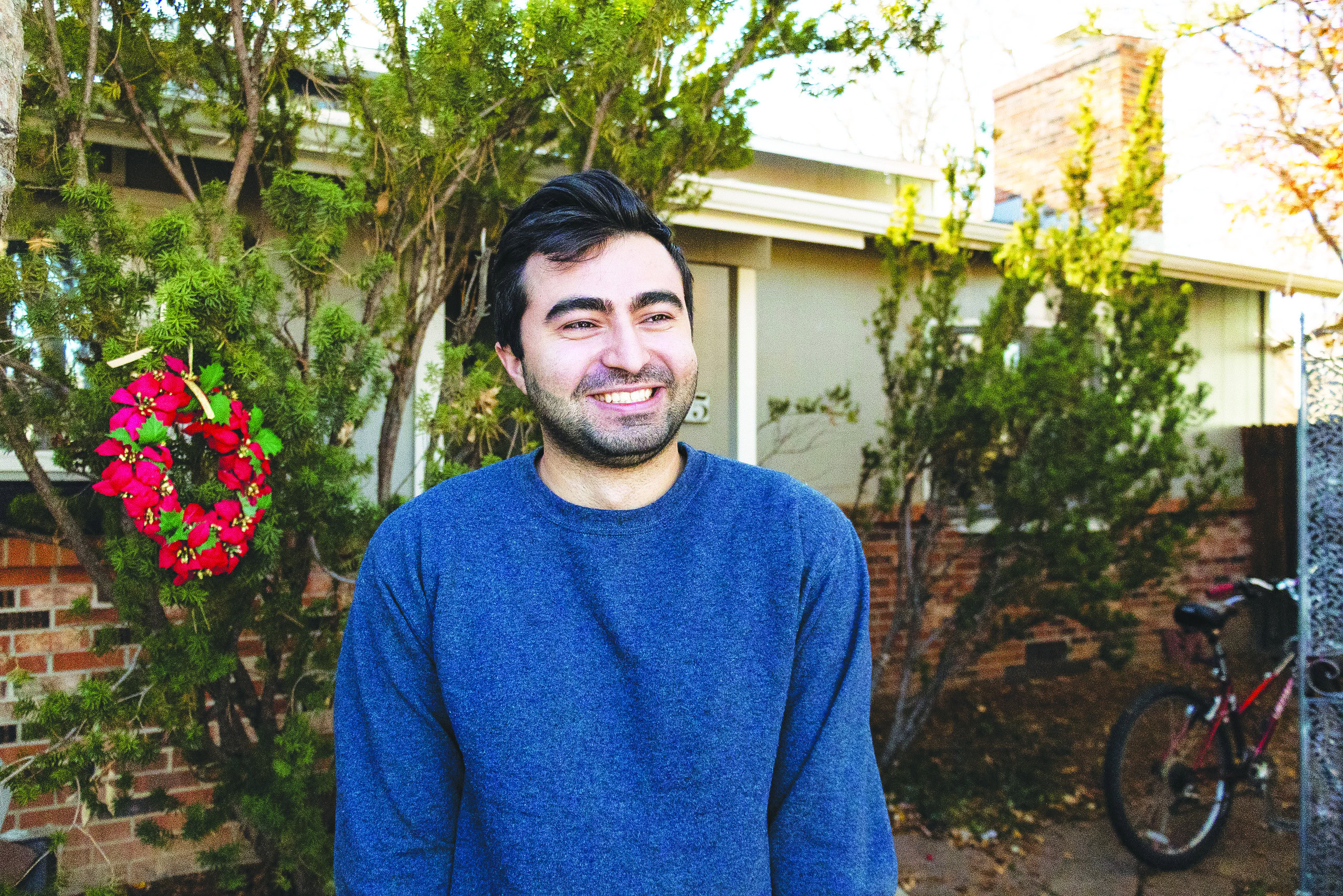
“I’m going to use the bathroom, mom.”
Rohan Mesto jogged up the hill and ducked behind a tree, unaware those were the last words he would speak face to face with his mother. Moments earlier, Mesto had snuck his phone away from his father, who planned to try and cross the border into their home country of Syria in the coming days. But Mesto can’t go back.
In a split-second decision, Mesto decided to escape toward the Lebanese border. He ran away from his family, toward a Lebanese army that would have shot him on sight if he was spotted. He was 16 years old.
Today, Mesto is 22. He lives in Lafayette as a refugee through the Welcome Corps program, a refugee sponsorship program established in 2023. His journey leaving the Middle East for the United States was long and treacherous, involving five American sponsors, two Boulder County nonprofits, four years in Lebanon and a painful estrangement from his parents.
“Every day, maybe you wake up and you say, ‘OK, I’m gonna do this tomorrow, and the day after, I have a plan to do that,’” Mesto said. “But for my case, am I going to wake up tomorrow?”
No man’s land
Lafayette is quiet compared to Beirut, Lebanon and Aleppo, Syria. Mesto misses living near the ocean, which was a source of calm when he was overwhelmed. But he has filled his life with friends, family, work and hobbies.
Mesto works at Starbucks, attends Community College of Denver to earn his GED and plays guitar in his free time. He uses WhatsApp to message and video chat with his two younger sisters and brother, ages 9, 12 and 14.
It has been five years since he’s seen them, or his parents, who have refused to speak to him since his fateful sprint for the Lebanese border.
“They said, ‘How dare you run away from your family? We don’t want you anymore,’” Mesto says.
Mesto chose an uncertain and lonely life in Lebanon over one with his family in his home country. Though Mesto is a Syrian Arab, he is ethnically Kurdish, leaving him vulnerable to persecution by the Syrian regime and conscription into the armed Kurdish rebel forces.
“Even though I’m Syrian, if you’re Kurdish, you’re different,” Mesto said. “They treat you like trash.”
Syria has been in civil war since 2011 after widespread discontent with former president Bashar al-Assad triggered mass protests. Mesto’s family fled from Aleppo to Lebanon in 2013 when he was 11 years old. Once there, Mesto stopped attending school to help support his family.
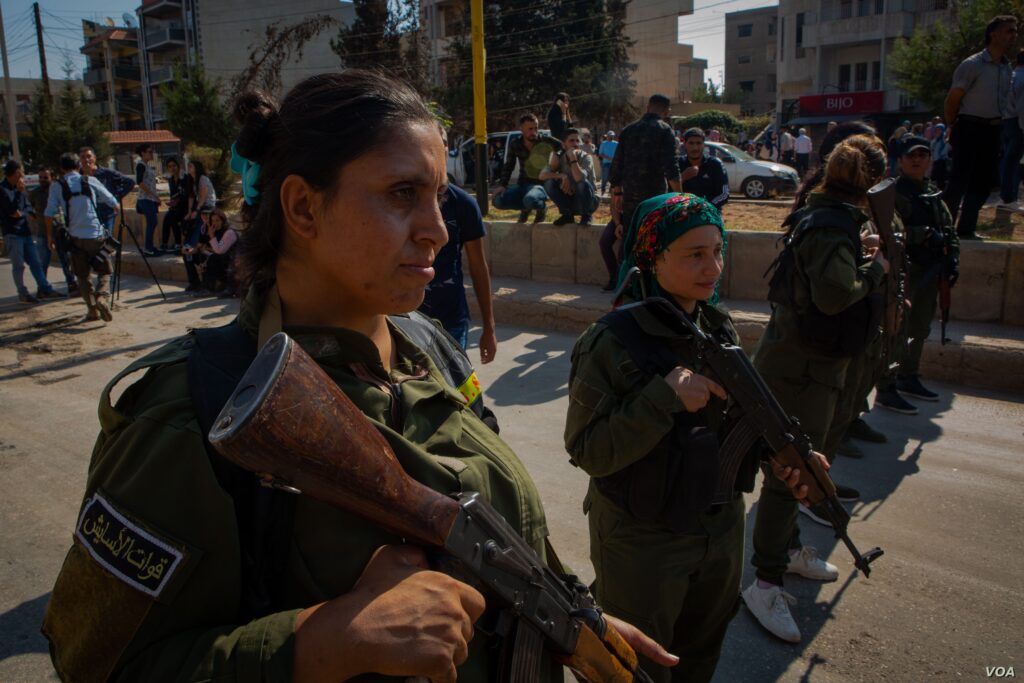
For seven years, his family lived in Lebanon. But the COVID-19 pandemic began, the Lebanese October Revolution broke out and Mesto’s father lost his job. He decided the family was going back to Syria.
“I said, ‘No, we can’t,’ but we went as a family,” Mesto said. “I’ve been forced by power to go to Syria.”
They crossed the Lebanese border with little trouble, heading toward the Syrian checkpoint with identification to prove they were Syrian citizens. But they were blocked from entering: The border was closed due to COVID-19 lockdown restrictions and no one was allowed in the country, even citizens like Mesto’s family.
“My dad said, ‘OK, let’s go back to Lebanon, let’s stay for a few more days until the border opens,” Mesto said. “So we went back to the Lebanese border, and they said, ‘You can’t go to Lebanon.’”
Stuck between the Lebanese and Syrian border, his family slept in the Anti-Lebanon mountains for four days with no fire or tent to protect them from the cold night air. They had hardly any food or water, besides what they could purchase from a truck that drove through the mountains each day. To stay warm, Mesto wore two pairs of pants and five shirts, his only belongings.
On the fourth night, the Lebanese army opened fire, hoping to push the family and a group of other stranded people toward the Syrian border. Mesto watched in horror as a little boy was shot in the arm, a man was shot in the leg and another man was beaten by soldiers.
He ran, holding the hand of his little sister, but a soldier struck Mesto on the head, knocking him unconscious and separating him from his family for hours. He walked through the night, eventually finding his family at 2 a.m. As he sat with them, watching the sunrise, he decided he couldn’t take it anymore.
“Even though the Lebanese army would shoot me and may kill me, it’s better than going to Syria,” Mesto said.
He swiped his phone from his dad, who had taken Mesto’s wallet, phone and ID to prevent him from leaving them, and he fled. He recalls running through the mountains during his escape to Lebanon. Several times he spotted the Lebanese army. He feared they had also seen him, and that any second he would be dead.
Eventually, he made it to a highway in Lebanon. After days without electricity, his phone had just 2% charge. He used what was left of his battery to call a friend, who sent a car to pick him up.
Though finally safe, the loss of his family weighed heavily on Mesto during some of the most formative years of his life. He was only a teenager, having to make his way in an uncertain world without the help or comfort of his parents.
“I grew up lonely, and watching other families, like a mother with her son hanging out: ‘Oh, where’s my mom?’ Or a dad playing with his daughter or his son: ‘Where’s my dad?’” Mesto said. “I still have this gap in my heart.”
‘We are trapped’
For four years, Mesto lived alone in Beirut. His multi-lingual skills — Mesto speaks German, Arabic, Kurdish and English — helped him get a job working as a travel guide and translator for tourists. He purchased a small apartment by the port, where he could see the blue waters of Saint George Bay from his window.
He enjoyed the hum and energy of the city and walking along the beach at night. The lapping waves helped keep thoughts of his tenuous status at bay.
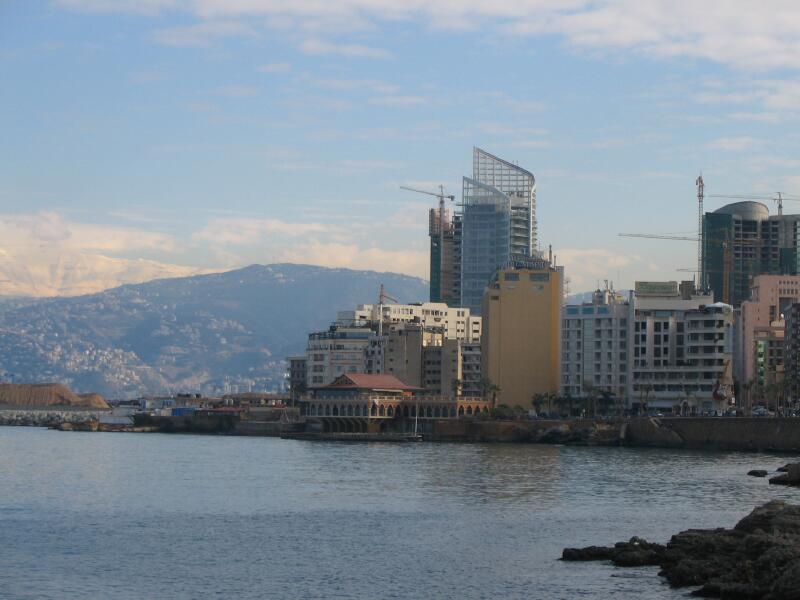
Though he was protected by the United Nations as an official Syrian refugee, Mesto was also subject to Lebanese law, which in some cases could overrule the U.N. He worried constantly that corrupt forces in Lebanon would strip him of his residency and send him to Syria, where he expected to die.
The only way to prevent that was to get out of Lebanon. Mesto applied for visas in Germany, the U.K. and Switzerland. All were denied, he says. His faith that another country would accept him grew weaker with each rejection.
So when a woman told him about a new U.S. program called Welcome Corps, he assumed it was a scam.
“Thank you so much for trying to help, but there is nothing like that,” Mesto remembers saying to her at the time. “I know a lot of Americans, and I’ve never heard of this before. She said, ‘No, it is true. Think about it.’”
That woman was Susan Bryant, a lawyer from Longmont who met Mesto while traveling in Lebanon in 2023. Weeks after she returned home, she was still thinking of the joyful and resilient man she met in Beirut.
“I was so taken with how he’s overcome the trauma,” Bryant said. He “just wants to lead a happy, safe life and be able to be productive, support his family and start a family of his own and get an education.”
She called Mesto and implored him to apply to the Welcome Corps with her and her husband Amine Tarhini, a Lebanese-American, as sponsors. But Mesto would also need three other people who live in or near Longmont to sponsor him as well.
Of the hundreds of people Mesto met each year through his job, he already knew at least one person from Boulder County: Kathy Hart. Mesto was her translator for several months during a volunteer mission in Lebanon, and during that time they became close friends.
Hart lives in Lafayette and has been helping refugees find asylum through her nonprofit, International Family Missions, since 2013. When she met Mesto on her travels to Lebanon in early 2023, she’d been struck by the positivity he maintained despite the severity of his situation. She could also sense his deep loneliness, so she kept in touch when she returned to the U.S.
“There’s just no words for the desperation,” Hart said. “It’s like, ‘We are trapped. You can’t go back, can’t go forward, and they don’t want us here, and we have no rights here.’
“Especially as a young guy, it’s like, ‘I have no future.’”
A seat with a view
Hart agreed not only to help sponsor Mesto, but to find two additional sponsors for him: Steve Brooks, also a Lafayette resident, and his wife Susan Brooks. The executive director of Mesto’s then-employer, Boulder-based nonprofit Christian ministry Horizons International, rounded out the group of five.
Only Bryant was familiar with Welcome Corps; the others were skeptical, but decided to undergo the required background checks, four hours of online training and 20-page application — and pony up the $2,425 in dedicated funding intended to support Mesto once he arrived.
The group submitted the application in summer 2023. Months ticked by with no update from the U.S. Department of State, which operates Welcome Corps. Hart encouraged Mesto and his sponsors to keep believing things would work out.
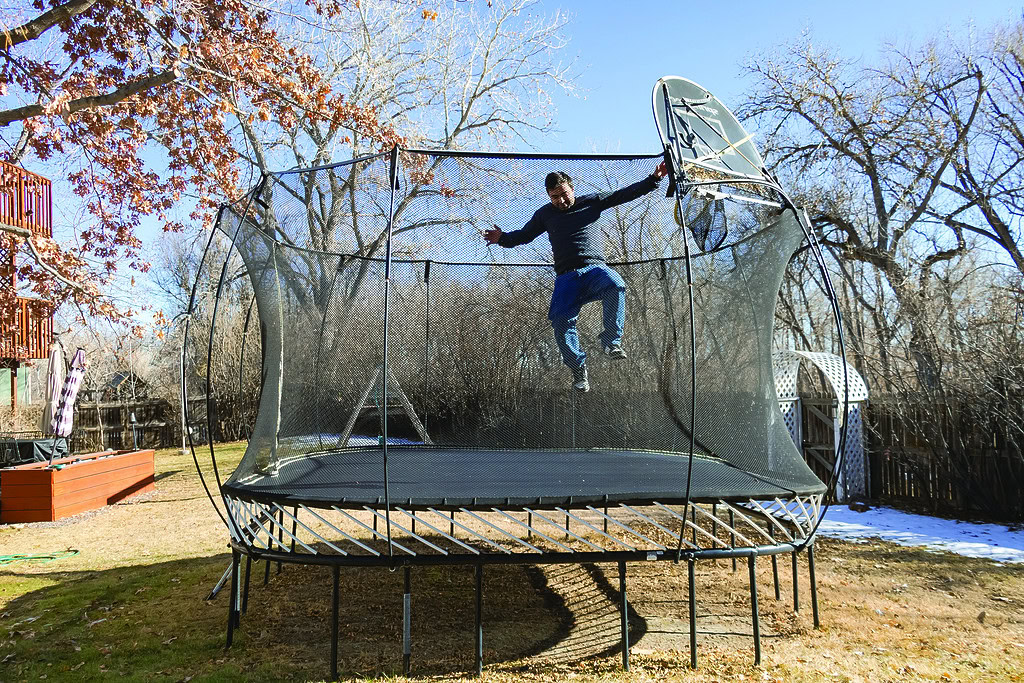
“It was a leap of faith,” Hart said. “I kept saying to him, ‘Trust God in this.’”
On Dec. 31, 2023 — the very last day applicants would be notified of their acceptance or rejection — the group received word: Mesto had been approved.
It was “the best New Year’s Eve present ever,” Hart said.
The good news came with a disclaimer. Processing Mesto’s application to come to the U.S. could take anywhere from nine months to five years — an unfathomably long time for the 21 year old.
“Five years? You know what, screw it,” Mesto said. “I want to leave tomorrow.”
Mesto couldn’t go back to Syria. The Lebanese government had stopped allowing him to renew his residency, and traveling without legal documents could get him arrested at a checkpoint. He felt stuck and completely out of options. He began making desperate plans, including one that involved bribing smugglers to bring him to Russia. From there, he would sneak into Belarus, then Poland, then Germany, where he could claim asylum.
But in March 2024, a mere three months after his application had been accepted, Mesto received word that it had also been processed: He could come to the U.S. By June 13, Mesto was on a plane to Chicago, nose pressed against the small oval windows for the entire 12-hour flight.
“They advised me to use the aisle seat so you can use the bathroom,” Mesto says. “Screw the bathroom. I would sit by the window and just look.”
‘Everybody is nervous’
Mesto lived with Brooks, one of his sponsors, when he first arrived in Colorado before eventually moving in with Hart at her home in Lafayette. Brooks taught him how to drive so Mesto could get his license, and Bryant recommended he attend classes at Intercambio, a local language education nonprofit, to strengthen his reading and writing before he applied to colleges.
Though Mesto is fluent in English, “I really enjoyed it,” he said. “The teachers at Intercambio were so nice. They did their job well.”
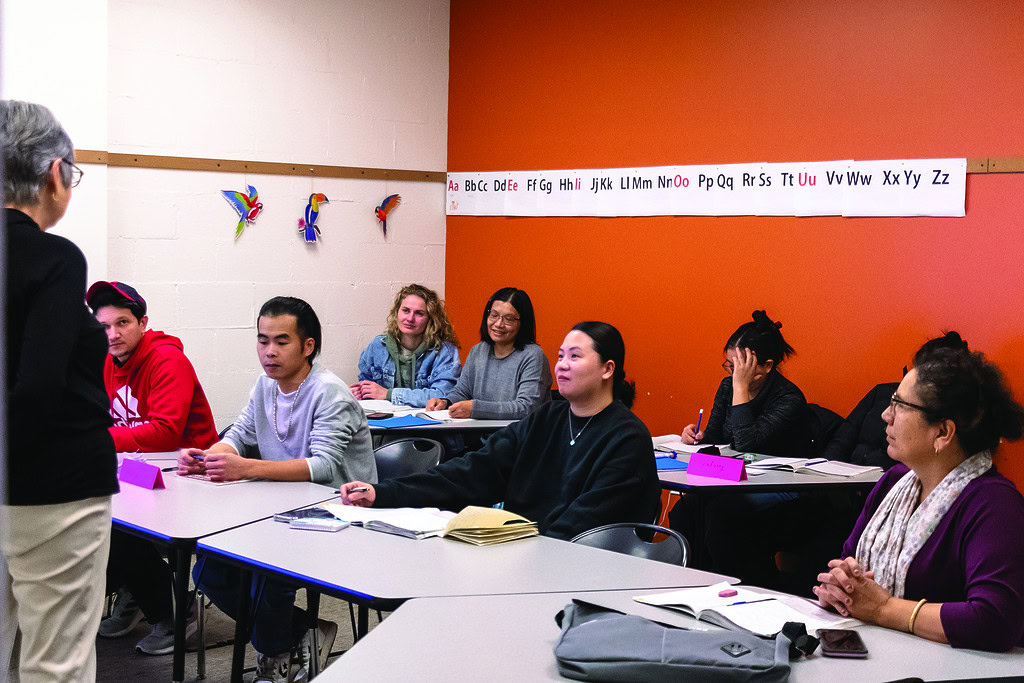
An added benefit was the friends Mesto made from all over the world, he said. Brooks believes Mesto’s “delightful personality” helped him adjust quickly to life in the United States.
“He is sensitive to other people’s needs, so it was easy,” Brooks said.
As an immigrant herself, Intercambio’s Director of English Programs Norma Fuentes Gallo knows firsthand just how important community is in helping people adjust to living in a new country. Intercambio helps people become proficient in English but also supports students and graduates in finding housing, employment and social events to connect with others.
“We focus a lot on our relationships, that’s our main goal,” Fuentes said. “The first step they take into Intercambio, we want them to feel heard, to feel that [they] belong to something. We’re always behind them, always talking with them, checking in with them.”
Intercambio’s staff and clients have been shaken by President-elect Donald Trump and his verbal commitments to conduct mass deportations. But the strong community they’ve built in Boulder County provides a feeling of safety, Gallo said.
Mesto and his sponsors feel confident in his legal right to be in the U.S. but there are frequent reminders of the scrutiny immigrants and refugees are under.
“At Thanksgiving dinner, someone brought up the topic that, with the new administration, he’d probably be shipped off,” Brooks said. “There was silence around the table.”
As for Hart, she believes Mesto will be safe, but she feels nervous about the future for other refugees. She’s been attending information programs with the Welcome Corps to stay apprised of recent updates.
“In the refugee world,” she said, “everybody is nervous.”
‘It’s only me’
On Nov. 27, Thanksgiving Day, Mesto celebrated his 22nd birthday at Brooks’ home, surrounded by friends and the sponsors who are now like family.
The same day, Syrian rebel forces began an offensive that would lead them to the capital city of Damascus in less than two weeks, forcing al-Assad to flee the country his family ruled for over 53 years.
Because so many of his memories from Syria are of pain, fear and violence, nothing would ever make him want to return, even if it was safe, Mesto said.
“I’m not a fortune teller, but based on my experience in Lebanon, and also in Syria and as a Kurdish and an Arab, I can say it is getting worse,” he said. “For me, there is no way back.”
Mesto’s family is currently living in Kurdistan, a Kurdish enclave in Northern Iraq, amid the ongoing violence between countries in the Middle East. From what contact he has with his family, he knows they are relatively safe, but they left behind a rich life in Aleppo with friends, family, careers and a comfortable home.
His father will always want to go back to Syria, he said.
Brooks helped organize a fundraiser through his church to send money to Mesto’s family. They used that money to purchase a van for their business delivering wholesale products to stores.
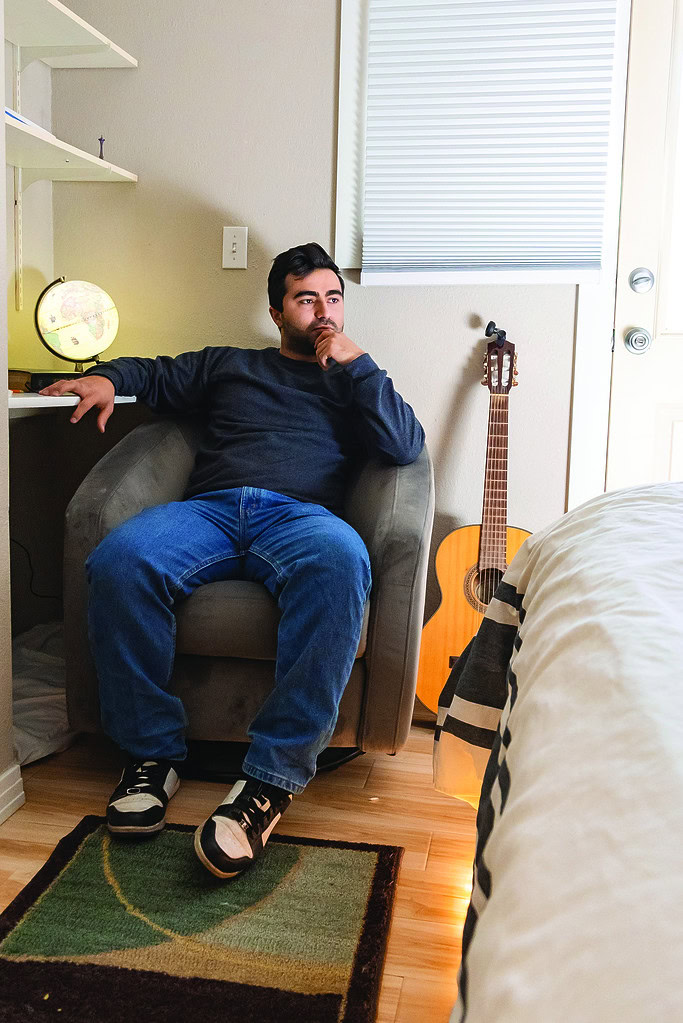
“[Mesto] was very pleased about that, because he feels like he bears some responsibility to take care of his family,” Brooks said.
Though his parents won’t speak to him directly, Mesto is relieved to know his family is alive and safe. He is still angry about how they cut him off when he escaped to Lebanon, but he is glad to have respectful, comfortable conversations with his siblings.
Mesto is grateful for his sponsors and considers them like family. Hart in particular feels like a mom to him — complete with nagging about mowing the lawn and cleaning up his room, he said. But without a close group of friends or relatives around, he often feels lonely, and has to cope with traumatic memories which sometimes make him feel depressed.
“When I get back from biking or driving, it’s only me,” Mesto said. “I feel like maybe I am the last one on Earth.”
Right now, Mesto is focused on his future: Applying for a green card next summer once he’s been in the U.S. for a year, getting his GED, eventually training as an EMT and possibly studying to be a nurse. He loves the view of the mountains from Lafayette, and has been hiking in Rocky Mountain National Park. He attends Flatirons Church on Sundays, and hopes to meet friends through the fellowship. He still finds time to connect with his sponsors, too. Just this month he biked to Brooks’ house to deliver flowers and say hello, Brooks said.
Mesto is comfortable with the fact that it will take time to be fully adjusted. Already having a bedroom to call his own and people who care about him makes Colorado feel like a place he can find happiness and peace.
“I can call Lafayette the home sweet home,” Mesto said. “It’s the warm home for me. It’s the shelter for me.”
This article has been updated to correct Norma Fuentes Gallo's position at Intercambio.
